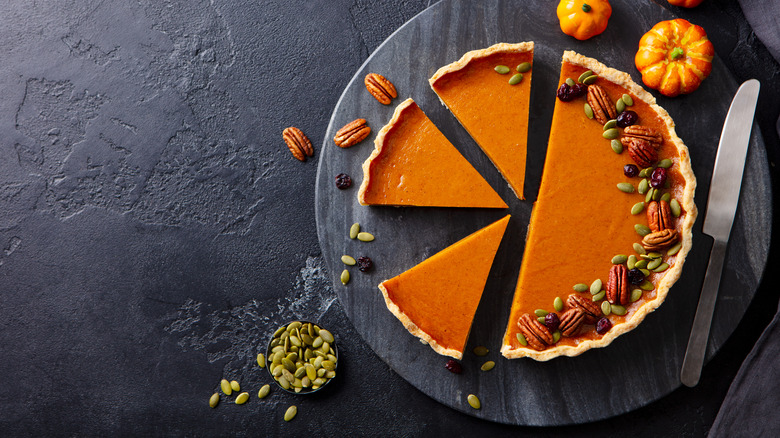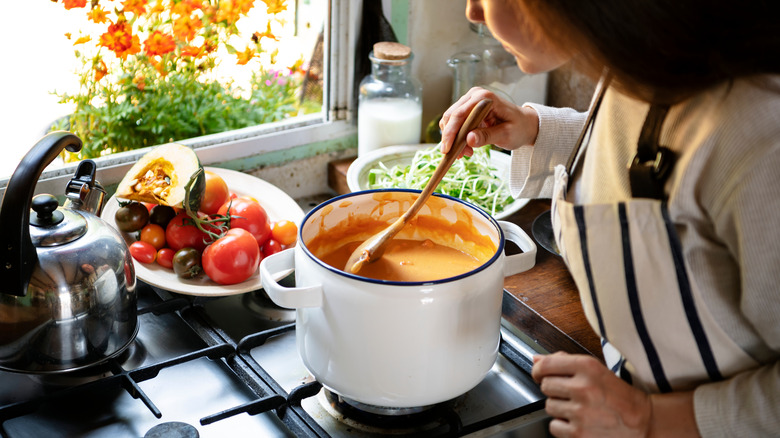Eating Pumpkin Has Way More Health Benefits Than You Thought
For many people, there is no fall without pumpkin-flavored foods. Between the lattes, the decorations, and the desserts, the flavor offers the warm, inviting feeling that so many of us crave as the weather cools. But, even though pumpkin has gotten a bad rap over the last few years, being labeled basic left and right, this squash has a plethora of health benefits you should be aware of.
First and foremost, pumpkin is a superfood, Women's Health reports, meaning that it has very few carbs and a high nutrient density. One of its primary benefits comes from its ability to protect various organs such as the liver. Since this organ is vital to breaking down waste and removing it from your system, it's always a good idea to care for it properly. Loaded with Vitamin C, pumpkin helps fight off disease while protecting your vital organs as well.
With high fiber and antioxidant counts, pumpkin can also support your digestive health. The outlet notes that pumpkin seeds contain high levels of zinc which also aid in regularity as well as support your immune system. Between Vitamin A, Vitamin C, and zinc, your pumpkin habit may be supplying you with the nutrients your body needs to function properly.
Any kind of pumpkin contains high counts of nutrients
If you're wondering whether or not you need to carve and roast your own pumpkin to reap its health benefits, there's good news. Even if you get your pumpkin puree from a can, you'll still ingest loads of antioxidants and vitamins. Good Housekeeping explains that, even in its preserved form, pumpkin still maintains its high nutrient density. The outlet even suggests swapping out creams and cheeses for pumpkin as a way to get more vitamins and minerals without digestive disturbance.
While pumpkins and their seeds are healthy additions to your diet, tread lightly with pumpkin spice. Much like any flavoring additive, these mixes are often loaded with artificial sweeteners and chemicals. To ensure that you're not eating a lot of processed flavorings, take a look at the ingredient list. If the product in question doesn't list pumpkin as one of the first ingredients, put it back on the shelf, the outlet recommends. The first ingredient should always be real food as opposed to a flavoring or "blend" of something.
Pumpkin's warm, earthy taste is healthy, decadent, and can warm you up on the coldest day. No matter where you get it from, this squash is a great addition to your diet.

